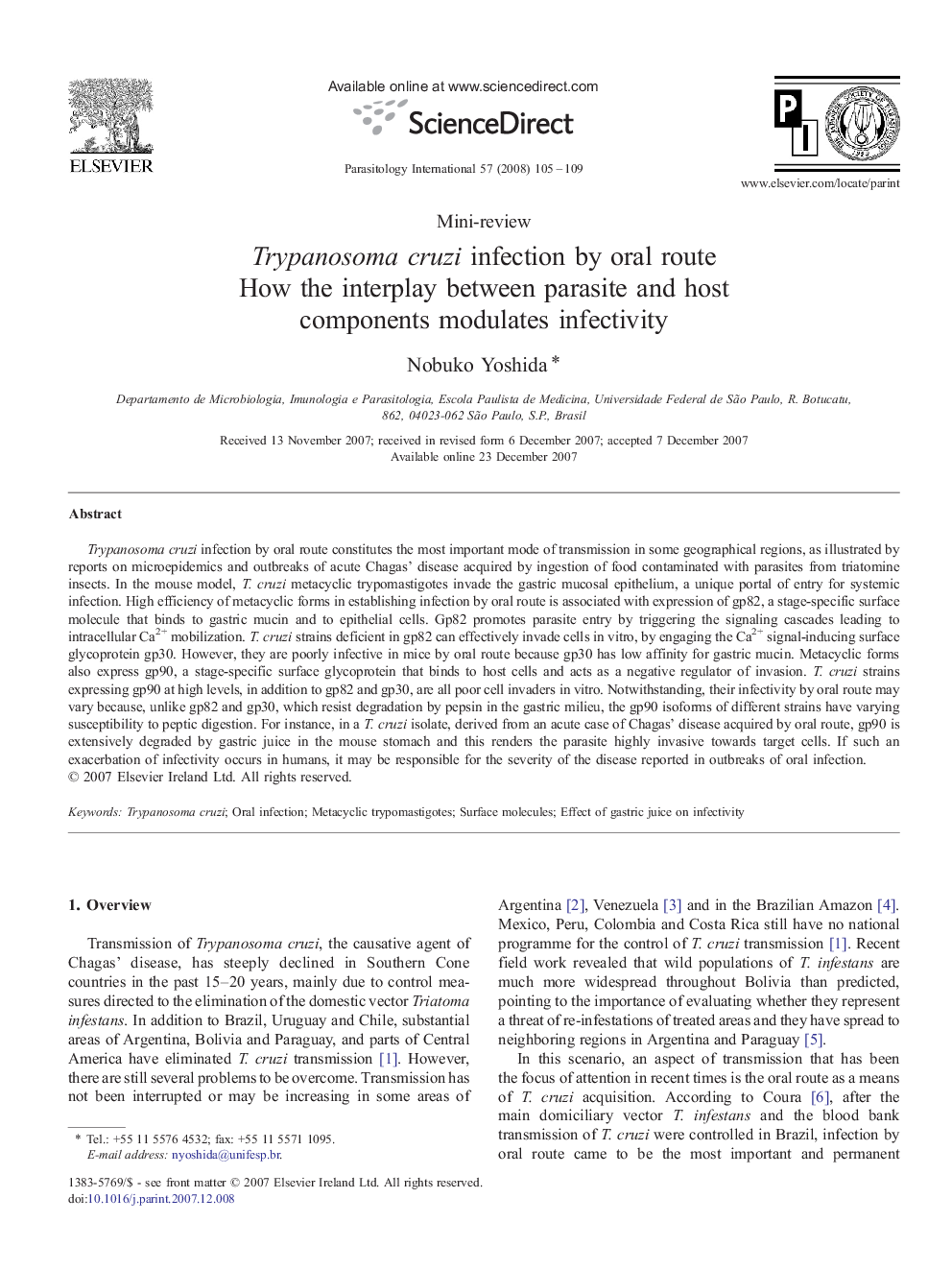| کد مقاله | کد نشریه | سال انتشار | مقاله انگلیسی | نسخه تمام متن |
|---|---|---|---|---|
| 3418397 | 1225512 | 2008 | 5 صفحه PDF | دانلود رایگان |

Trypanosoma cruzi infection by oral route constitutes the most important mode of transmission in some geographical regions, as illustrated by reports on microepidemics and outbreaks of acute Chagas' disease acquired by ingestion of food contaminated with parasites from triatomine insects. In the mouse model, T. cruzi metacyclic trypomastigotes invade the gastric mucosal epithelium, a unique portal of entry for systemic infection. High efficiency of metacyclic forms in establishing infection by oral route is associated with expression of gp82, a stage-specific surface molecule that binds to gastric mucin and to epithelial cells. Gp82 promotes parasite entry by triggering the signaling cascades leading to intracellular Ca2+ mobilization. T. cruzi strains deficient in gp82 can effectively invade cells in vitro, by engaging the Ca2+ signal-inducing surface glycoprotein gp30. However, they are poorly infective in mice by oral route because gp30 has low affinity for gastric mucin. Metacyclic forms also express gp90, a stage-specific surface glycoprotein that binds to host cells and acts as a negative regulator of invasion. T. cruzi strains expressing gp90 at high levels, in addition to gp82 and gp30, are all poor cell invaders in vitro. Notwithstanding, their infectivity by oral route may vary because, unlike gp82 and gp30, which resist degradation by pepsin in the gastric milieu, the gp90 isoforms of different strains have varying susceptibility to peptic digestion. For instance, in a T. cruzi isolate, derived from an acute case of Chagas' disease acquired by oral route, gp90 is extensively degraded by gastric juice in the mouse stomach and this renders the parasite highly invasive towards target cells. If such an exacerbation of infectivity occurs in humans, it may be responsible for the severity of the disease reported in outbreaks of oral infection.
Journal: Parasitology International - Volume 57, Issue 2, June 2008, Pages 105–109